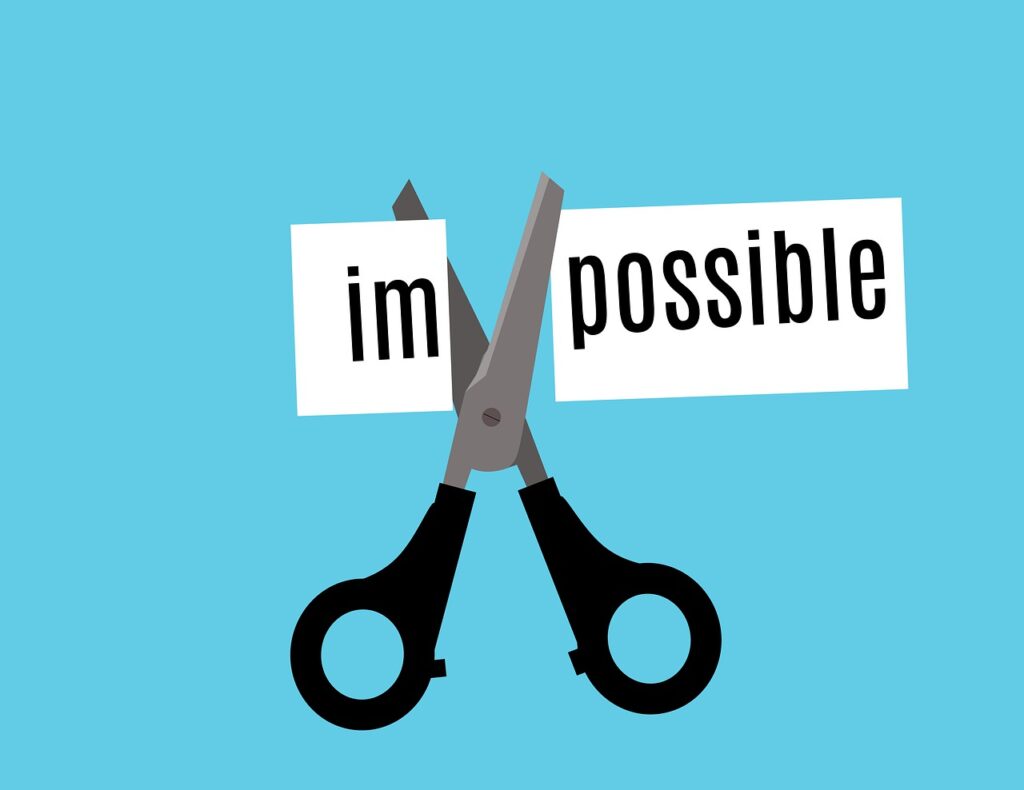Over the past 40+ years of studying and working with feng shui, I’ve realised that one of the best ways to understand it and have better results is to go beyond it. Albert Einstein and others have recognised that in order to solve a problem we need to go to a higher level of thinking or beyond it. Otherwise, as Einstein said, “We cannot solve our problems with the same thinking we used when we created them.” In short, a problem can’t be solved on its own level. Personal problems are notoriously difficult to be solved from personal perspectives – one needs to go beyond to transpersonal, spiritual domains.
The key question is: what is feng shui for?
Feng shui is considered many things: philosophy, art, science, design, cosmology and more. “What is feng shui for?” is the question: “What does it mean to live in a physical environment? “and “How are humans placed/positioned between Heaven and Earth?” and ultimately, “How to live (in harmony with the world)?
For me, feng shui is to affirm life. The function of feng shui is to create a lifestyle you want. Feng shui is a physical affirmation. We do things physically to get results in our personal and professional lives. Most people (consciously or unconsciously) use feng shui or variations of feng shui in order to better themselves. Yes, you can change and improve your life by moving furniture in your home or workplace AND you can get the same results by mentally affirming life – by rearranging or improving the interior (design) of your mind and soul. Feng shui is a holistic interior design of your exterior environment and interior milieu. Obviously, working on both (interior and exterior) can bring better, quicker and more powerful results, not to mention the fun of the journey.
Levels of power
Power is defined as a measure of control you have over your life. The more control and authority you have over your life, the more power you have.
Who or what has authority over your life? You or feng shui/environment? Many feng shui enthusiasts (and practitioners) make a simple thinking error of putting their lives in feng shui ie giving feng shui authority over their lives.
For me, the order of power (top-down) is
1) us (we have the most power),
2) others around us (others, people, our family, friends can influence us), and
3) the environment / feng shui (then external factors can affect us as well, some more than others).
So as you can see feng shui is not the most influential factor in life – you are. You have authority over your life. Put feng shui in your life, not the other way around. It’s just a tool. You don’t want tools to rule your life. Ritual is a servent of intention. Having said that, it’s good to have interesting, nice and supportive environments :). The attitude of people who have gone beyond feng shui is: yes, I choose to create a nice, supportive environment for working and living and I can also function successfully in any environment, good or bad. Feng shui doesn’t determine my life. I do. You are the ultimate potentiality of which the all-embracing consciousness is the manifestation and expression.
Relative vs absolute feng shui
There are many ways to define feng shui. The most fundamental is the locus of control and points of view. Are you coming from a relative, limited perspective which is personal, local and temporal or from the absolute perspective which is universal, impersonal, timeless and non-local? The absolute perspective is like gold and the relative is like the gold ornaments. In feng shui people get bogged down and obsessed with trinkets and ornamental remedies which is a good start and sometimes appropriate. The key factor in feng shui is energy and the rest is just a manifestation of that core energy (qi/chi). You have a choice – you can deal in gold ornaments feng shui or in gold feng shui. When you melt a gold ornament to make another, there is no causal relation between the two. The common factor is the gold. In the same way reality makes everything possible and yet nothing that makes a thing what it is, its name and form, comes from reality. When you look at your world from an absolute perspective you don’t need to worry too much about the details – they will resolve themselves naturally and organically.
How to go beyond feng shui?
The above order of power gives us a clue on how to go beyond feng shui. It’s simple, we are already beyond the physical environment – we just need to realise and accept this as a truth. Don’t give your power away to your environment ie feng shui, is the first step. Next, work on your manifestation process, so you can get what you want without moving furniture in your home or workplace.
Affirmation is a manifestation tool
As I said, for me feng shui is an affirmation of life – we do physical things in order to accomplish something, either because of our desires or fears (pleasure/pain principle). Summerly put, feng shui = intention + ritual/event. In feng shui terms, the rituals or events are environmental ie physical changes. The ritual or event can also be mental eg a prayer is a manifestation ritual or tool. As we know, not all prayers or rituals are successful. If all prayers were successful everyone would be happy, healthy and successful, which is not the case. But some people are more successful than others at manifesting their dreams and goals. They are, generally speaking, better at affirming life (consciously or unconsciously).
Let’s deconstruct how successful affirmations work.
What is an affirmation?
“Affirmation is not action per se, but the power of becoming active, it is the personification of becoming active,” says Gilles Deleuze. He further suggests that “affirmation is itself difference”. Difference is light, aerial and affirmative. To affirm is not to bear but, on the contrary, to discharge and to lighten. This gives us a clue on how to affirm ie it’s not about hard work. To contrast negation with affirmation, negation is difference too but in a bottom-up fashion, whereas affirmation is difference from top-down.
More importantly, let’s look at the key question: where exactly do affirmations take place? The answer is obvious: in our consciousness. To follow our rule of thumb, ie by going beyond the actual domain of something, in order to understand it better – let’s go beyond affirmation or consciousness itself. It is said, that as long as we’re conscious there will be pain and pleasure (desire and fear). We can’t fight desire and fear on the level of consciousness. By going beyond consciousness you can become free of consciousness. How do you do that? It’s a bit tricky because the very intention of stepping out of consciousness or going beyond consciousness happens in our consciousness. It’s literally, a chicken and egg paradox. But if you look at consciousness as something that happens to you, not in you – something external and superimposed – then suddenly you’re free of consciousness. Your very attitude to free yourself from consciousness and to go beyond it, will create a situation that will break the eggshell. Then you’ll embed a true reality where the world is inside you, not the other way around. From that inclusive perspective, whatever you imagine or intend will be the right affirmation because everything is inside you – literally. When you affirm enough, anything, you can’t lose.
How does it look, in practice to affirm something?
Let’s say, for example, you want a new car [or … whatever] for whatever reasons (at this stage the reasons are not relevant). You set your intention by saying, “Yes, I have a new car (model is optional).” in a top-down fashion as a desire. Immediately, a negation/s comes up ie “I don’t have a new car”, in a bottom-up way (you don’t actually have that car yet, physically). This creates a conflict or duality in your mind and reality. To resolve this problem, you need to go to the next logical level above or beyond this illusory/transient problem. You need to affirm both – what is and what isn’t. To visualise how it works, imagine a triangle where on the bottom line are two states/events:’no-car’ and ‘car’ but above at the apex, there is ‘non-car’ event as a virtual potentiality that includes and transcends the duality of the problem. Notice that “non-car” includes your desired car and not having a car. That’s how you can mentally go beyond the paradox of not having something and having something at the same time. From that virtual inclusive space, it will be much easier for you to actualise what you want since there is no friction, no reaction between “no”/”nothing” and “yes”/”something”. You’re saying ‘yes’ to “no” and ‘yes’ to “yes”. It’s a double yes (yes-yes). In short, you affirm all chance, all possibilities, all scenarios –and the event is a positive expression of the whole fate.
In a way, you need to have an impersonal attitude to what you want or desire. You need to go beyond the results you want. You sort of observing yourself doing it all. It’s kind of a contradiction but it’s necessary. When you affirm enough, you don’t care whether you win or lose, get it or not get it, gain something or nothing. When you see the whole process for what it is and thus not expect anything in return for yourself – the object of your affirmation has no choice but to manifest itself. It’s in the nature of love to express itself, to overcome difficulty. People who affirm enough, do it in a single affirmation. Whenever you have any shadow of a doubt, it’s not an affirmation.
This is why research suggests that ordinary affirmations work for about 50% of the population. It’s a hit and miss phenomenon. For example, let’s say I want to become a good golfer (I’m not at the moment) and my affirmation is “I’m the best golfer, like Tiger Woods”. My body knows that I am not that good at golf. And this kind of affirmation can work against me. But for some people, it works! These individuals somehow have managed to go beyond/transcended the duality of a good golfer and not a good golfer. Good players affirm chance enough, and therefore never lose. The phenomenon of a beginner’s luck is well known: beginners don’t really know what they’re doing – they haven’t really formulated what’s good and bad and therefore have more luck at the beginning.
How to go beyond your intentions and expectations?
In order to be fully free and go beyond your desires and fears you need to be open to unexpected and unpredictable. Having a mindset for unexpected and unpredictable (which is active and conscious) is different from deterministic ‘que sera sera’ attitude which is passive and unconscious. The reason is that your desires based on memory are unreal, so therefore you cannot realise them. Read about the difference between realising your dreams and actualising them.
Feng shui examples
In my feng shui vocation, I was lucky to meet extraordinary individuals who have mastered the art of affirmation. For example, in one case, we hung a piece of chewing gum on a window (instead of a crystal) to boost the wealth corner of the property with almost immediate effect. In another case, we use a postcard with a koi carp to sell a property in literally 5 minutes. In another case, the sheer intention of doing the feng shui ritual did the trick of selling the property. In my life, I just write down what I want and will it – and that’s quite often enough to get the job down. Ultimately, you want to be in such harmony with life that you don’t actually even need to desire anything and all your needs and dreams come true, almost automatically, before you need them or think them – that’s the art of affirmation. When your intention is congruent and resonant with your environment – it doesn’t matter much what kind of ritual you use – it’s the event that matters. Yes, it’s obviously nice to use elegant and appropriate remedies but it’s not essential (so choose a nice crystal or plant, instead of chewing gum). The key is the intention or affirmation, not the remedy itself because it’s a top-down manifestation process. The ritual/event is just the servant of your affirmation.
People often ask me to help with feng shui to sell a property. This is what I suggest to them. Whenever you do any feng shui rituals, make sure that you have a clear intention for attracting the cash buyer/s quickly and the sale to go through. Write down all the scenarios for sale, including the most unimaginable – as long as they lead to a quick sale. Imagine the deadline of the next 4-5 weeks at the most and be prepared that the property can sell any time, any day, even just right now. It’s a done deal. Affirming the whole process is as essential, if not the most important, as doing the rituals. Feng shui = intention/affirmation + ritual. In a word, feng shui is affirmation. Once the whole sale is affirmed, the divergence of different scenarios is the object of affirmation within the sale. The whole of the sale is then indeed in each scenario. When the whole sale is sufficiently affirmed then, you can’t lose on any scenario (that’s why you need to be very clear about all winning scenarios – writing them can add clarity and actualisation/realisation of them and for the scenarios that you can’t imagine just write Other…). If you’re not congruent about the sale, or if you have any doubts re the sale, you need to clear them using EFT /tapping or Havening technique, or any other way of clearing any negativity (read below point 1).
When affirmations or feng shui rituals don’t work
We can learn from things that don’t work. There are many factors to consider to decipher when and why things don’t work out. Over the years, I’ve been fascinated by cases when feng shui didn’t work to figure out why and how this happened.
The three main factors are:
1) People with their limiting beliefs and behaviours are usually the main cause or friction point in the process of manifestation. Unsurprisingly, people are very good at blocking or sabotaging their own success, even though they consciously want results. As a solution, a useful question in such situations is: how am I stopping myself from achieving…. xyz…? And there are many reasons: from not believing in yourself, to low self-esteem, to guilt, to not deserving success, to not having the right values, resources, etc etc (the usual excuses). Quite often, people get secondary gains from staying stuck, not being successful. Problems attract attention and if that is the only way they’ve figured out to get special attention – they will create problems.
Sometimes, though, it might be nothing to do with you because it’s not the right time, for whatever ‘external’ reasons. BUT you need to distinguish that from YOU not being ready for something. When people use the excuse of not being ready (or it’s not meant to be), it’s usually because they’re afraid of change.
2) Imagination is another factor. The difference between successful people and unsuccessful ones is imagination. To paraphrase a Chinese saying (there are no incurable illnesses, only incurable people): there are no unsolvable problems, only unresourceful/uncreative people. Successful people imagine themselves achieving their goals and dreams. Solution? Exercise your imagination. Read, watch and do interesting, new things. Study art. There are actually books about creativity and how to boost it. Imagine impossible things. Hang out with interesting and creative people. Solve puzzles, to remind yourself that you can solve things.
3) Luck. Luck is a skill and if you haven’t learnt it, or mastered it, even if you don’t block your success and have the right imagination, you still may have issues with manifesting your desires. The solution here is very simple and easy to do: become lucky! How? Master it from Richard Wiseman and his seminal, evidence-based work “The Luck Factor”.
As you can see, the feng shui rituals are not to be blamed on the failure of feng shui. All three factors are mental constructs and within your power to change and improve. Successful people take responsibility for their beliefs, values and behaviours. They are determined, persistent and patient when pursuing their goals and dreams. They never give up on themselves, and what they want. They learn from others, books and intelligently reflect on their progress – they have the resilience and flexibility to adapt their environment to their needs in order to become successful. Ultimately, they’re the masters of their fate and destiny because they’ve gone beyond themselves.
Let me know about your experiences with affirmations that worked well, without any hard work and the ones that didn’t work and you’ve managed to turn things around.
Imagine a dense forest full of tigers and you in a strong steel cage. Knowing that you are well protected by the cage, you watch the tigers fearlessly.
Next you find the tigers in the cage and yourself roaming about in the jungle.
Last — the cage disappears and you ride the tigers!




